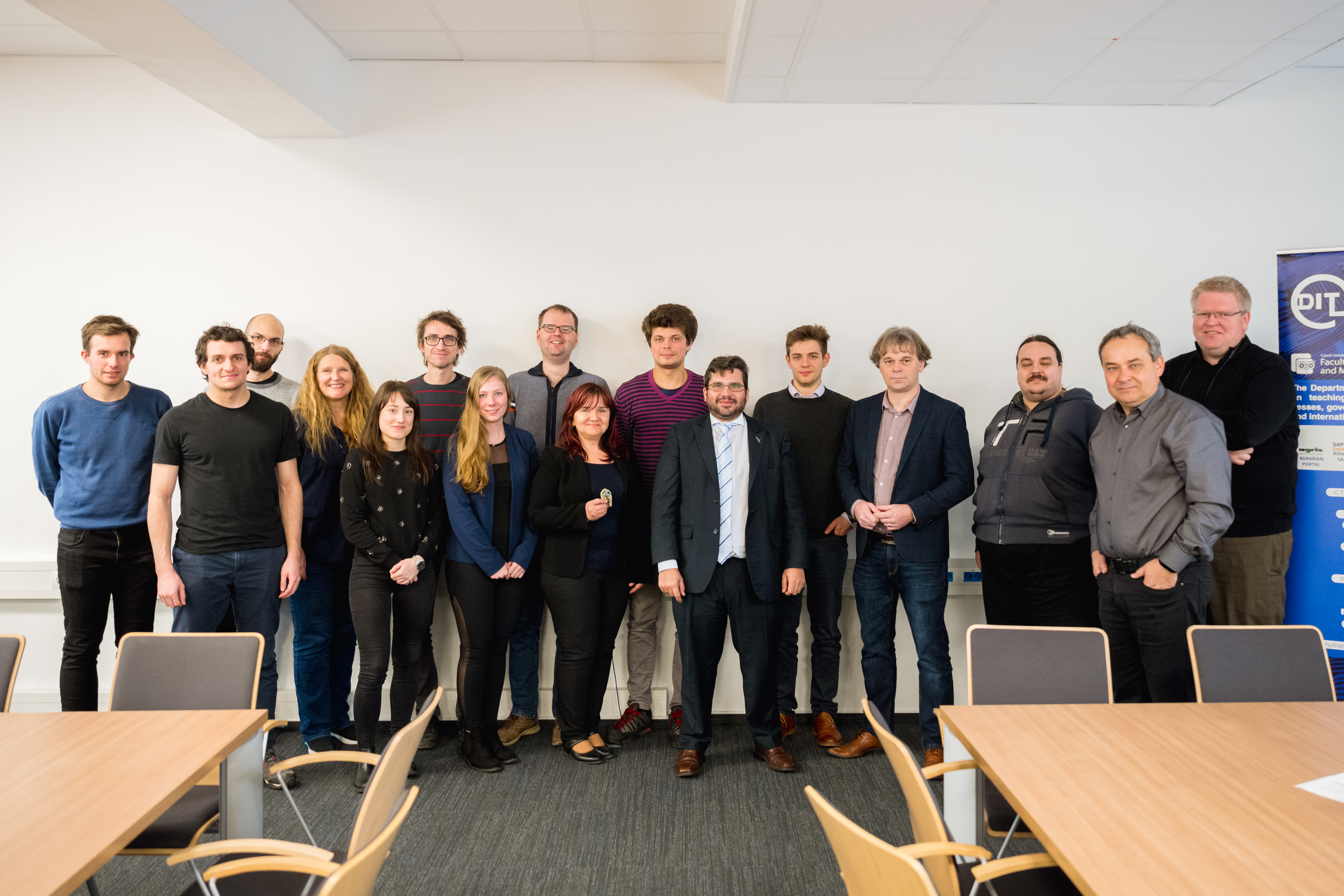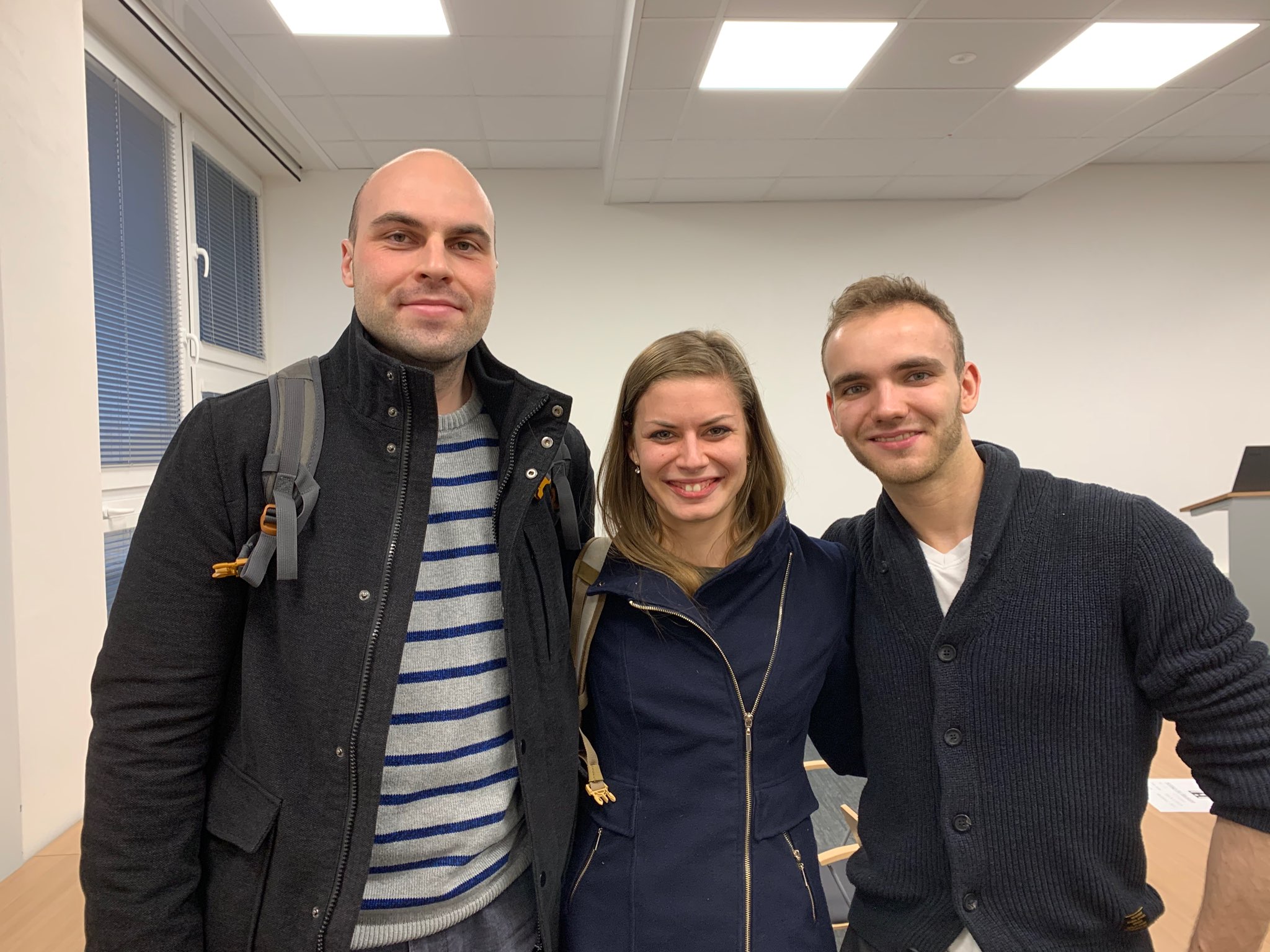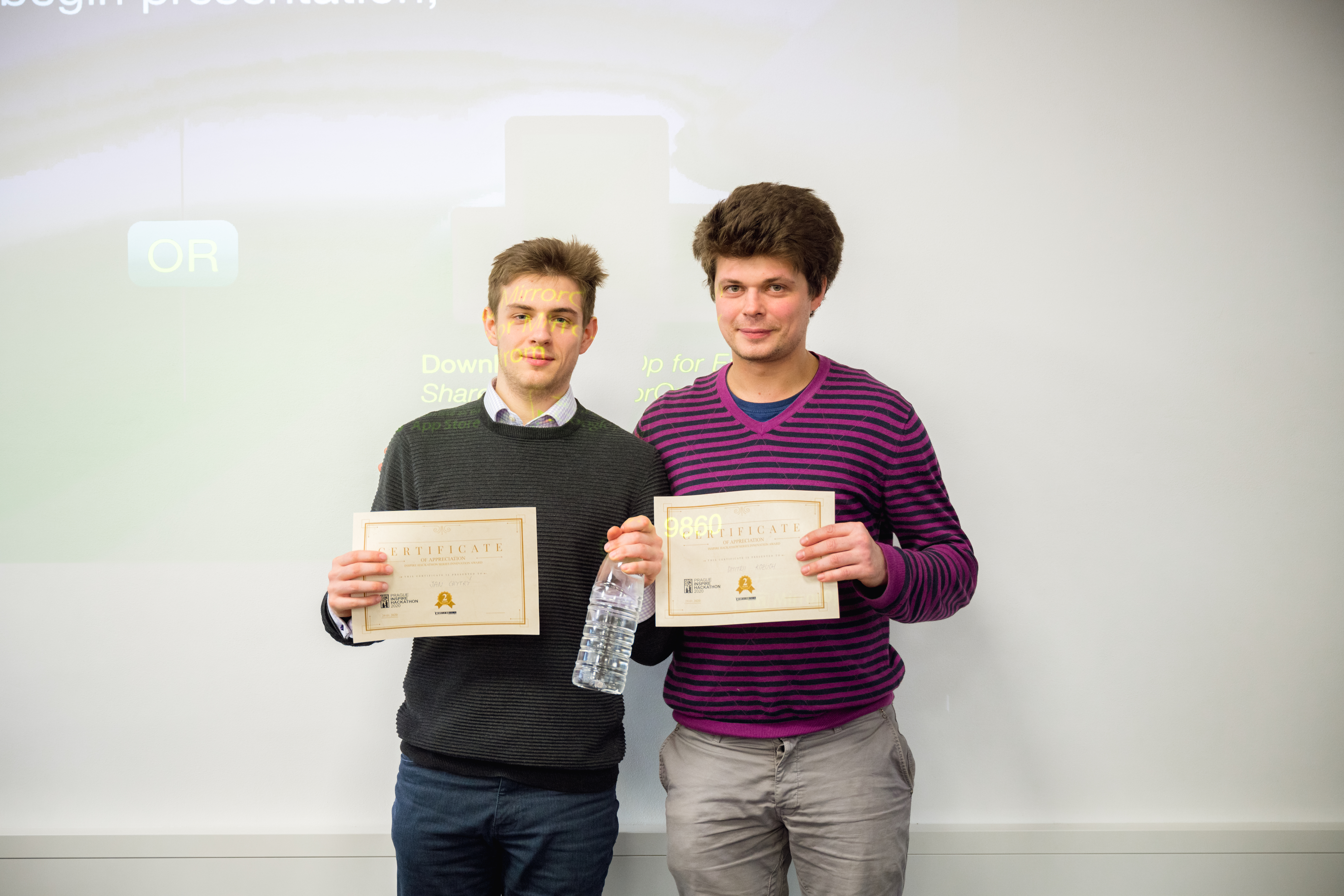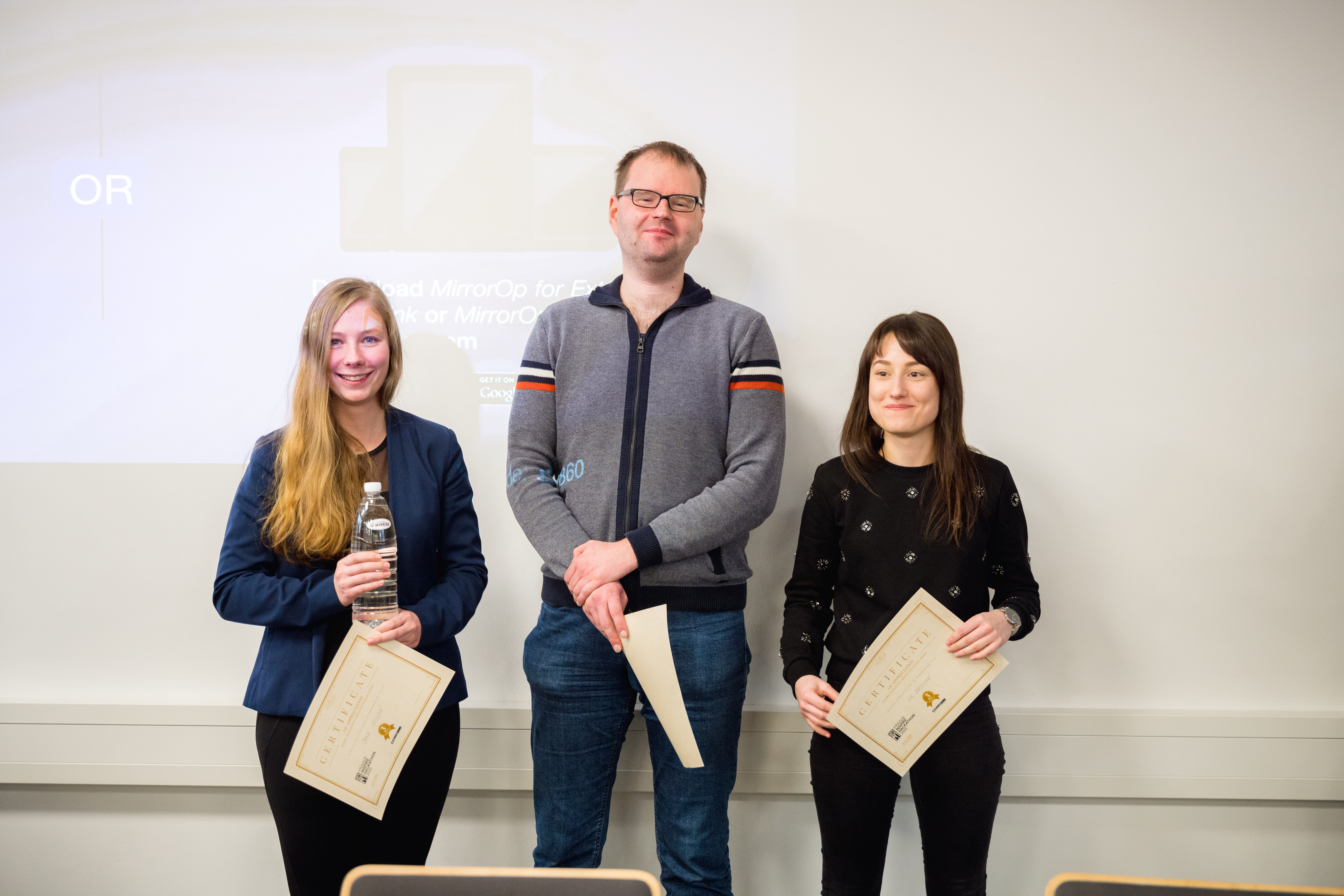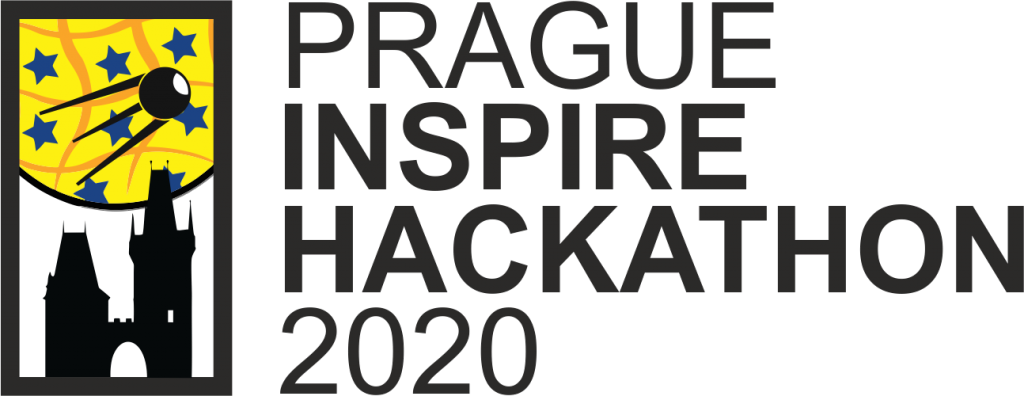
THEME
The main theme of the next edition of the Prague INSPIRE Hackathon is Digital Innovation Hubs, Earth Observation and Artificial Intelligence for Rural and Regional Development, Agriculture and Transport.
3 STAGES OF THE HACKATHON
This hackathon is organised in the frame of the INSPIRE Hackathon series and is divided into three stages:
- Call for Digital Innovation Hubs* (DIHs) – DIH owners have a chance to register their DIH that would be used by the hackathon teams. This includes a submission of up to 3 challenges that should be tackled by hackathon teams. The call for DIHs is currently open until 20th November 2019.
- Remote Stage – This part will be open to anyone interested to join the hackathon. Upon registration, participants will form teams and tackle some of the challenges submitted by the DIH owners. The remote stage will take place from 2nd December 2019 until 12th January 2020.
- In-Situ Stage – this stage includes the on-site hacking, presentation of results and the awards ceremony. All the teams will be invited to present their results. The in-situ stage will take place from 27th until 29th January 2020 at the Czech University of Life Sciences in Prague. Registration link below.
RESULTS
The jury members including Bente Lilja Bye, (Plan4all, Norway), Joaquin Reyes (GSA, Czech Republic/Spain), Runar Bergheim (Avinet, Norway) and Jan Pavlik (CULS – Institute of informatics, Czech Republic) announced the following winners of the Prague INSPIRE Hackathon 2020:
- 1st place: Challenge/Team 6 Using AI algorithms for defining boundaries of agriculture fields on the base of Sentinel 2 Images / Jan Horak, Ondrej Kaas, Hana Kubickova
- 2nd place: Challenge/Team 12 Testing new data model for Open Land Use / Jan Chytry, Dmitrii Kozuch
- 3rd place: Challenge/Team 7 Testing possibilities of Sentinel 1 data for yield forecast / Jana Seidlova, Iva Batrlova, Jirka Kvapil
TEAM 6 – Using AI algorithms for defining boundaries of agriculture fields on the base of Sentinel 2 Images – Ondrej Kaas, Hana Kubickova, Jan Horak
TEAM 12 – Testing new data model for Open Land Use – Jan Chytry, Dmitrii Kozuch
TEAM 7 – Testing possibilities of Sentinel 1 data for yield forecast – Jana Seidlova, Jiri Kvapil, Iva Bartlova
IN-SITU STAGE
You are cordially invited to join us at the third stage in Prague from 27th until 29th January 2020.
Venue: Faculty of Economics and Management of the Czech University of Life Sciences in Prague, Kamýcká 129, Praha Suchdol, Czech Republic
This is the final stage of this hackathon and includes the on-site hacking, presentation of results and winning ceremony. During the three days all challenges will be finalised. All the teams will be invited to present their projects on the last day. For this reason, the teams should prepare presentations showing the results of their hackathon projects.
We have identified a set of challenges that you are encouraged to answer or contribute to. Each challenge is lead by a mentor and is related to various innovation hubs (see the list of the challenges and mentors below). The participants of the hackathon can choose to work on any of the predefined challenges. In this way, teams will be built to collaborate on solving these challenges.
The goal of the Prague INSPIRE Hackathon 2020 is to promote utilisation of digital innovation hubs in agriculture and transport.
Prizes
There are a few interesting prizes to be won in this version of the INSPIRE hackathon. Check out the challenges to see what they are.
Register
Here you can register to the in-situ part of the Prague INSPIRE Hackathon 2020:
https://docs.google.com/forms/d/e/1FAIpQLSeWF7vPeXnjVSPHAIEOhEfwq03D5ZunZ_BZ0CyjfO2-OShwdw/viewform
Agenda
Monday 27th January
09:30 Welcome and introduction
09:45 Team/challenges pitches (3 minutes per idea)
10:00 Hacking in teams
12:00 Lunch
13:00 Hacking to you drop (until 18:00)
Tuesday 28th January
09:00 Hacking continues
12:00 Lunch
13:00 Hacking to you drop ( until 18:00 )
Wednesday 29th January
09:30 Presentation of results – Each team gets 12 + 3 minutes to present + Q&A
12:00 Lunch/Evaluation by the jury
13:00 Ceremony
14:00 END
There will be snacks and drinks in the room. Dinners will be self organized.
The Challenges
The challenges and their mentors for the Prague INSPIRE Hackathon 2020 include:
- 1. Mechelen Pilot – TraMod/Spotbooking integration, mentor: Daniel Beran
- 2. Agroclimatic map of selected region,mentor: Pavel Hájek
- 3. AI applications for Earth Observation-based crop field risk management, mentor: Kristina Šermukšnytė-Alešiūnienė
- 4. Web solution for attractiveness of regions, mentor: Otakar Cerba
- 5. Clustering of European NUTS 3 regions based on different parameters, mentor: Karel Charvat
- 6. Using AI algorithms for defining boundaries of agriculture fields on the base of Sentinel 2 Images, mentors: Hana Kubickova, Jan Horak, Ondrej Kaas, Jiri Kvapil
- 7. Testing possibilities of Sentinel 1 data for yield forecast, mentors: Karel Charvat, Jiri Kvapil
- 8. Analysis of climatic trends in selected regions , mentor: Jaroslav Šmejkal
- 9. Building SIEUSOIL Metadata profile for Soil Data, mentors: Tomas Pavelka, Tomas Reznik, Lukas Herman, Karel Charvat
- 10. OSM data for TraMod, mentor: Pavel Blahnik
- 11. Noise modelling with TraMod data, mentor: Tomas Nekut
- 12. Testing new data model for Open Land Use, mentors: Michal Kepka, Dmitrii Kozhukh
- 13. Testing QGIS Python API and Atlas plugin for QGIS, mentor: Jiri Kvapil, Jan Vrobel
* Digital Innovation Hubs are one-stop-shops that help companies to become more competitive with regard to their business/production processes, products or services using digital technologies. They are based upon technology infrastructure and provide access to the latest knowledge, expertise and technology to support their customers with piloting, testing and experimenting with digital innovations.
ORGANISERS AND SUPPORTERS
Department of Information Technologies has been involved in the field of teaching and scientific research, collaborates with business, governments, and domestic and foreign universities. It participates in many domestic and international projects and is part of international teams tackling applied research. Its focus puts DIT among the most prolific departments of Faculty of Economics and Management Czech University of Life Sciences Prague.
Plan4all – Plan4all is a non-profit association sustaining and further enhancing the results of multiple research and innovation projects. It aggregates large open datasets related to planning activities in different specialisms areas transport, spatial and city planning, environment and tourism. Plan4all makes sure that open data are easily accessible for reuse, data are maintained and their quality is improved.
CSITA (Czech Society for Information Technology in Agriculture) nongovernment organization was founded in 2002 for the purpose of supporting development and use of ICT in agrarian sector (agriculture, forestry, water management, environment, food environment and manufacturing industry) and in countryside in general (in rural regions).
The focus of WIRELESSINFO is new development, testing and exploitation of services and technologies for spatial data management in areas of rural development including agriculture and forestry, emergency systems, logistics and public administration
LESPROJEKT-SLUŽBY Ltd, as a small innovative firm, has a vast experience in applying research results in practice. A long-term focus of LESPROJEKT-SLUŽBY Ltd is on commercialization of research results as products and services. LESPROJEKT-SLUŽBY Ltd plays a crucial role in the market for more than 20 years and focuses mainly on commercial activities in environment, crisis management, forestry, agriculture and transport. The results from previous research activities are offered mainly as services, e.g. SaaS (Software as a Services), PaaS (Platform as a Service) a IaaS (Infrastructure as a Service).
Ceske centrum pro vědu a společnost
CCSS is focused on transfer, analyses and proliferation of the most advanced technologies which are contributing to the growth of productivity not only in industrial enterprises but in the branch of small and medium business as well. CCSS is active in the agriculture, industry, trade and services, predominantly in agricultural regions. The priority of activities of CCSS is Environment protection and crisis management. In this field CCSS is active in European research.
SmartAgriHubs is a €20 M EU project under the Horizon 2020 instrument, and brings together a consortium of well over 164 partners in the European agri-food sector. The project aims to realise the digitisation of European agriculture by fostering an agricultural innovation ecosystem dedicated to excellence, sustainability and success.
PoliRural will provide a set of knowledge resources including an inclusive learning environment where rural populations, researchers and policymakers come together to address common problems; an evaluation exercise that uses text mining to assess the perceived effectiveness of past or planned policy interventions; and a foresight study that will collect the development trajectory of agriculture and its allied sectors until 2040 using several scenarios in which the evolution of rural populations occupies a central place
EO4AGRI main target is the preparation of the European capacity for improving operational agriculture monitoring from local to global levels based on information derived from Copernicus satellite observation data and through exploitation of associated geospatial and socio-economic information services.
SIEUSOIL aims to develop sustainable and holistic soil management practices based on a harmonised land information system suitable for diverse climate and operation conditions along different EU and China locations.
STARGATE
STARGATEs contribution beyond state-of-the-art in applied climatic data solutions is the implementation of analytics models to support local and regional policy formulation and implementation related to mitigation on microclimate changes. Currently, policy making organizations predominantly utilize own data, typically limited to their own jurisdiction/administrative area.
DEMETER
The DEMETER Project is a large-scale deployment of farmer centric interoperable smart farming-IoT based platforms delivered through a series of 20 pilots across 18 countries (15 States in the EU). Involving 60 partners, DEMETER adopts a multi-actor approach across the value chain (demand and supply), with 25 deployment sites, 6,000 farmers and over 38,000 devices and sensors being deployed and participants involved come from different production sectors (dairy, meat, vegetables, fruit and arable crops), production systems (conventional and organic) and different farm sizes and types, optimising the data analysis obtained across multiple farms.
NextGEOSS – The NextGEOSS project will implement a federated data hub for access and exploitation of Earth Observation data, including user-friendly tools for data mining, discovery, access and exploitation.
EUXDAT – Agriculture is a, literally, vital industry. Not only important for nourishment, but also a key determinant of health, economic and political stability; employment; business and biological ecosystems; and society. Because of its importance, most attention focuses on productivity but it is essential to have a global view in order to address environment sustainability problems.
Liverur – Living Lab research concept in Rural Areas.
LIVERUR aims to expand an extremely innovative business model called Living Labs among rural regions. Living laboratories are ecosystems of open innovation, centered on the user, which often operate in a territorial context, integrating concurrent research and innovation processes within a public-private partnership.
The basis for the strategic development of a rural Living Lab is to establish an association of sustainable stakeholders; users, policy makers, businesses and researchers enter into agreements on the basis of which they can participate in a longer-term collaboration.
However, it can be expected that a successful Living Lab design will be highly affected by the specific context of Living Lab’s rural environment and by its specific objectives and ambitions.
The LIVERUR project identifies Living Labs as innovative business models that are currently being developed in rural areas, and will conduct socio-economic analyzes to identify, describe and compare the differences between the new approach of Living Lab and more entrepreneurial traditional approaches (mass production, development of prices, optimizing cost structures with companies, rationalization).
In the long term, the project will increase the potential for rural economic diversification.
(Social media: Two official accounts: @liverur on Twitter, @Liverurproject on Facebook).
PoliVisu – Policy Development based on Advanced Geospatial Data Analytics and Visualisation. is a Research and Innovation project designed to evolve the traditional public policy making cycle using big data. The aim is to enhance an open set of digital tools to leverage data to help public sector decision-making become more democratic by (a) experimenting with different policy options through impact visualisation and (b) using the resulting visualisations to engage and harness the collective intelligence of policy stakeholders for collaborative solution development.
AFarCloud – Farming is facing many economic challenges in terms of productivity and cost-effectiveness, as well as an increasing labour shortage partly due to depopulation of rural areas. Reliable detection, accurate identification and proper quantification of pathogens affecting both plant and animal health, must be kept under control to reduce unnecessary costs, trade disruptions and even human health risks.
Responsible innovation promotes science education, open access, risk-assessment, good governance, societal engagement, gender equality and ethics,. Central European countries lack knowledge, skills and policy frameworks to encourage responsible innovation. This shortage limits the overall potential for innovation and ultimately threatens responsible economic growth and well-being. The ROSIE project aims to improve skills among entrepreneurs and innovation actors to promote responsible innovation in companies. More information about the ROSIE project is available on the web page, Facebook and LinkedIn.
Commission on Maps and the Internet of International Cartographic Association (ICA) detects and integrates new trends related to the interconnection of cartography and the Internet such 3D cartography, semantic issues in cartography and spatial data, participatory mapping and co-creation approach in cartography, new education methods related to the Internet, Big data, Linked Open Data or Internet of Things. More information about the commission is available on web page, Facebook, Twitter or LinkedIn.

NextGEOSS – The NextGEOSS project will implement a federated data hub for access and exploitation of Earth Observation data, including user-friendly tools for data mining, discovery, access and exploitation. This data hub will be supported by a strong commitment to the engagement of Earth Observation and related communities, with the view of supporting the creation of innovative and business oriented applications. The main general objectives for NextGEOSS are to 1) Deliver the next generation data hub and Earth Observation exploitation for innovation and business; 2) Engage communities, promoting innovative GEOSS powered applications from Europe; and 3) Advocate GEOSS as a sustainable European approach for Earth Observation data distribution and exploitation. NextGEOSS engages main providers of Earth Observation data, including Copernicus Collaborative Ground Segments and Core Services.

RDA Czech Republic – RDA is an international volunteer member-based organisation and as such encourages the initiative and support of its members across the globe to animate their community on a national level. RDA Europe national node are part of the RDA Europe support programme whose aim is to interact with researchers and innovators in the local language, offering them a platform for exchange of information pertinent to the RDA and their activities and in strict compliance with RDA’s guiding principles of Openness, Transparency, Consensus-based, Community driven, Harmonisation and Non-profit. The national pages should not be interpreted as an official representation of the Research Data Alliance in any country or any organisation unless this is specifically stated.

